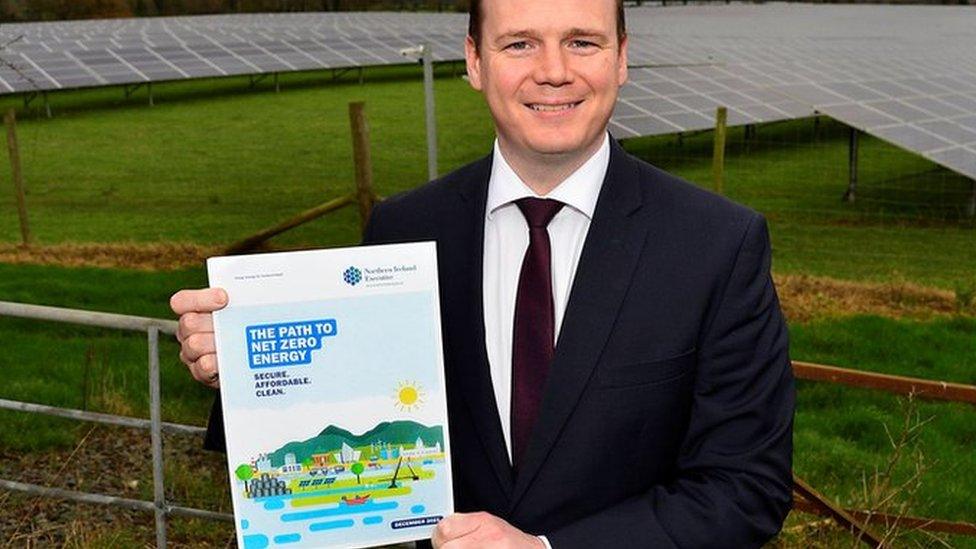Climate change: Will 2022 be the year NI gets legislation?
- Published
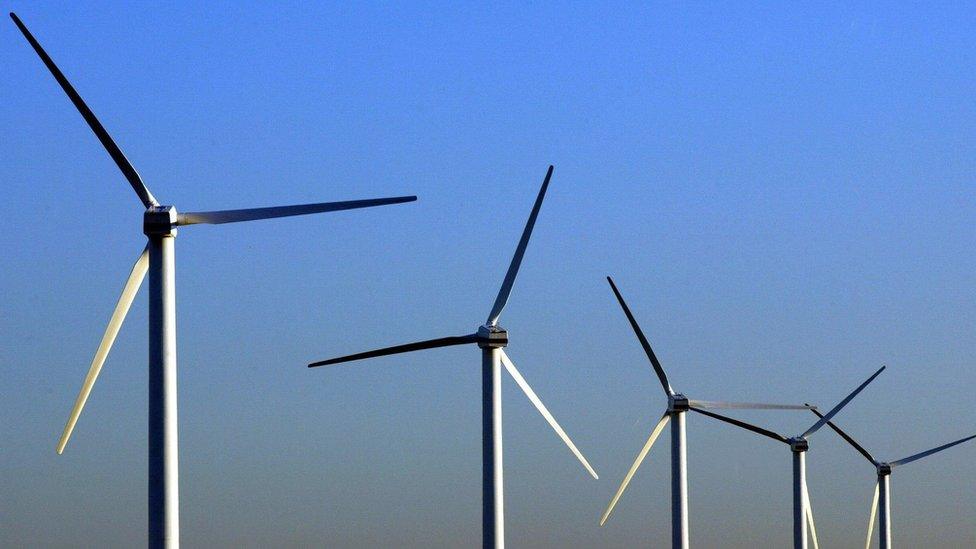
Northern Ireland has two climate bills waiting to become legislation
Northern Ireland began 2021 without climate change legislation - and is ending the year with two bills in a race on the path to becoming law.
Each have differing targets, with Climate Change Bill No. 1 proposing to reach Net Zero by 2045.
The private member's bill from Green Party leader Clare Bailey is viewed as more ambitious than No. 2.
The second one, brought by the Agriculture and Environment Minister Edwin Poots, sets a target of an 82% reduction in emissions by 2050 - a figure aligned with what the Climate Change Committee says is possible given our reliance on agriculture.
A short-lived bid to find a compromise between the two bills foundered in the autumn, and it remains to be seen which, if either, will cross the legislative finish line before this assembly's mandate ends in March.
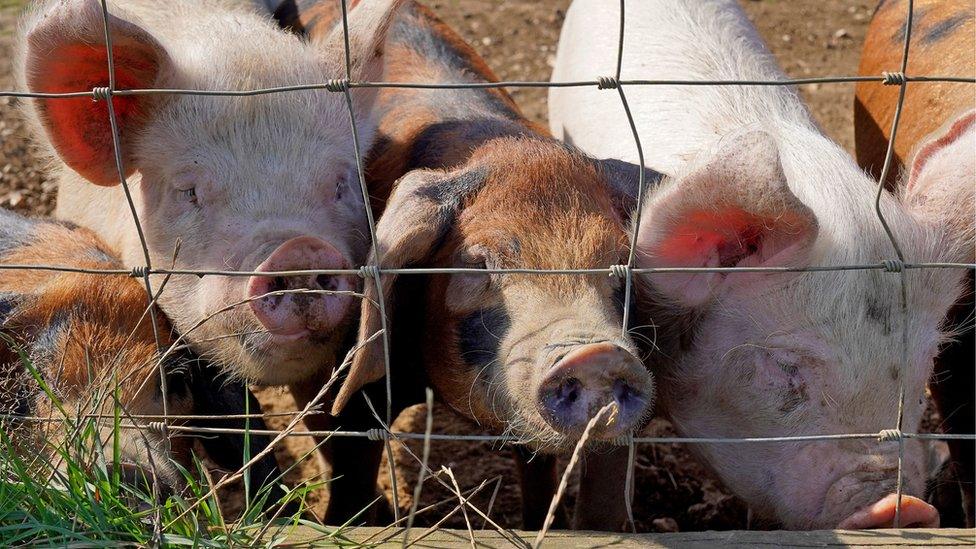
Farmers are braced to see which legislation is passed
Farmers watched the goings-on at Stormont warily.
Some fear what any legislation will mean for herd numbers and methods of farming here. But amid the uncertainty, most acknowledge that the only thing they are sure of is that change is coming in 2022.
Brexit posed problems for local fishermen, who said they'd been "mugged" during the share-out of the extra quotas. Organisations warned of a loss of millions of pounds to the economy for years to come.
The Mournes began to recover slowly, after a huge gorse fire burned on Slieve Donard for three days in April.
It was the size of 365 rugby pitches, and devastated flora and fauna in the area of outstanding natural beauty, at a time of year when many birds and wildlife species were laying eggs and rearing young at ground level.
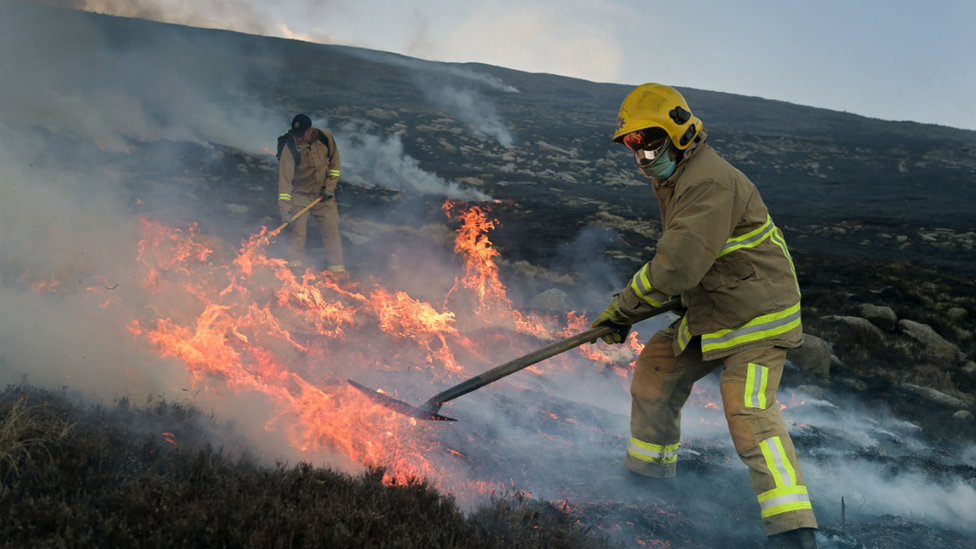
A gorse fire devastated flora and fauna on Slieve Donard
A plan to close the controversial Renewable Heat Incentive scheme and compensate owners was unveiled.
It proposed buying out participants at a total cost of around £68m - a prospect not welcomed by boiler owners. The consultation on closure and compensation closed in April and has yet to report back.
In November, the UK played host to the climate change conference, COP26.
It saw a flurry of high-level agreements and side deals to tackle rising temperatures and their potentially catastrophic effects.
There were agreements on the "phase-down" of coal, stopping and reversing deforestation, and increasing the use of electric vehicles. Taken far above our heads perhaps, but still relevant to Northern Ireland - for example, we are one of the most deforested parts of Europe, with just 8% of woodland cover.
Schemes to redress that balance are already underway, with a new forest of native trees being planted in the hills above Belfast, and a One Million Trees programme putting saplings around the city.
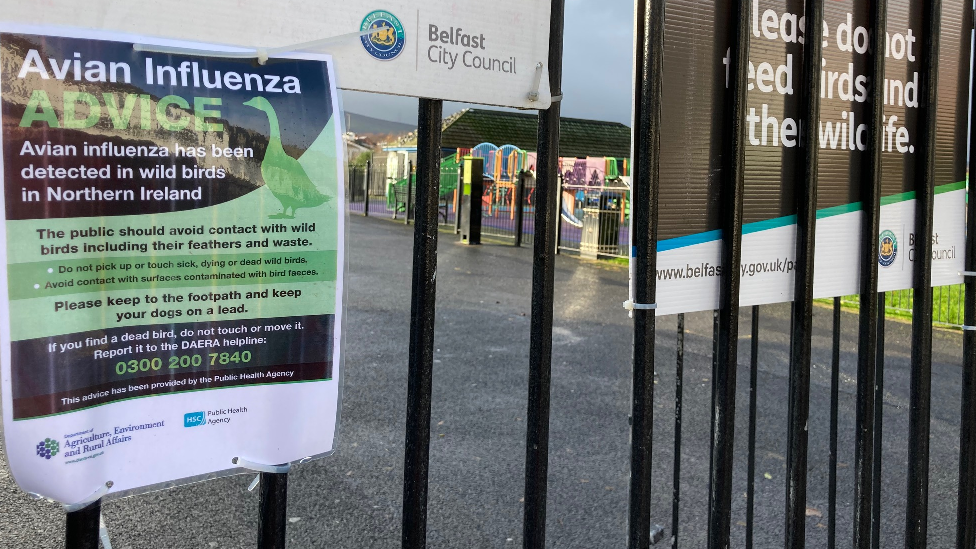
The Waterworks Park in Belfast was temporarily closed due to bird flu
The largest ever outbreak of bird flu in the UK began in October.
As cases spread in Great Britain, a protection zone was established in Northern Ireland.
Cases were identified in wild birds at the Waterworks in Belfast in November. The highly pathogenic disease was detected in three commercial flocks and a backyard flock in counties Tyrone and Antrim from November into December.
Thousands of ducks and poultry have been culled. The minister said the compensation bill could run in to "tens of millions" of pounds.
As the year drew to a close, a new energy strategy happened with a whimper rather than a bang, on one of the final pre-Christmas meeting days for the executive.
It will be followed by an action plan early in the new year, officials said, with a "significant" pilot scheme to transform our home heating already planned.
What can we expect in 2022?
This year will be another year of environmental focus.
The proposals from COP26, if fully delivered on, only reduce global warming to just under 2C, which could still wipe some island nations and low-lying coastal areas off the map.
Northern Ireland's contribution to reducing that impact has yet to be decided, but there will be a contribution, with changes and consequences for us all.
Related topics
- Published12 November 2021
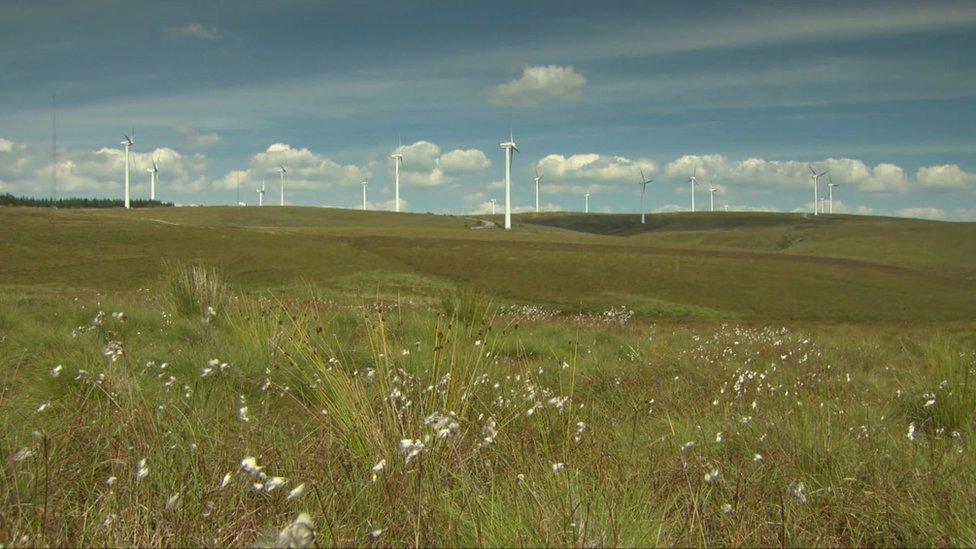
- Published30 October 2021
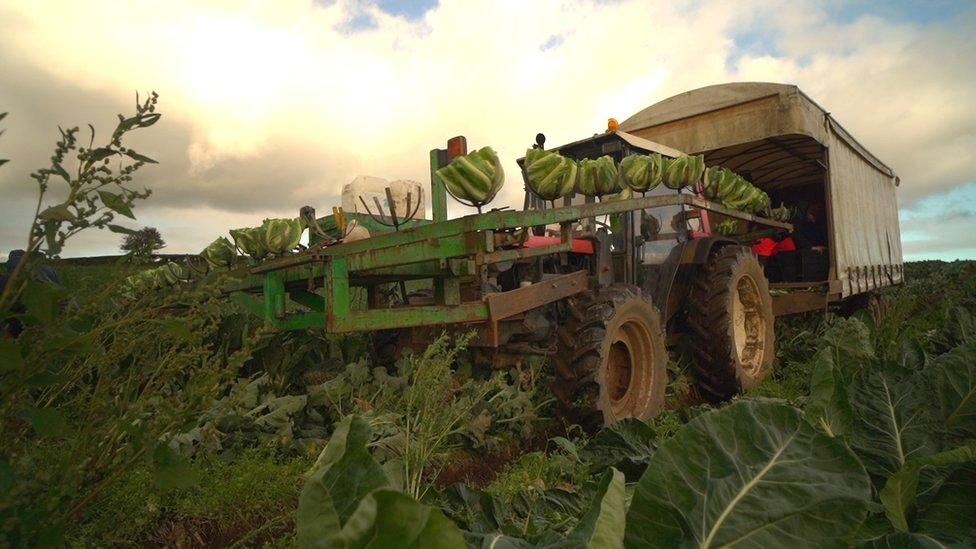
- Published16 December 2021
